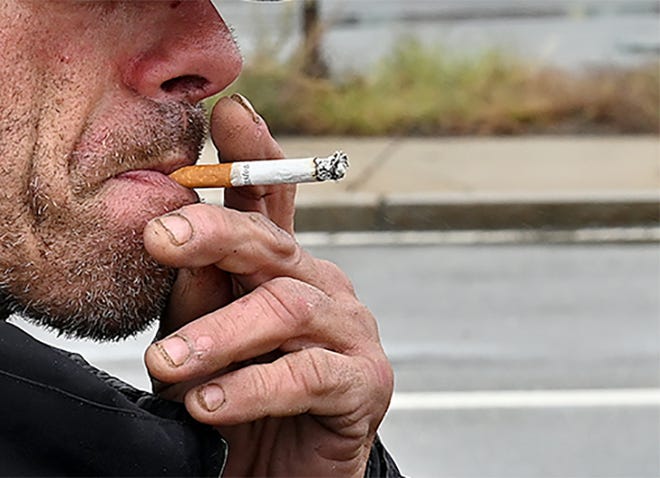Jason came to the emergency department complaining of six weeks of intermittent fevers, chills and cough. When his symptoms first started, several of his family members had been sick with similar symptoms. They tested themselves multiple times for COVID and it was always negative.
He said he typically got a cold every fall as the seasons changed and figured this was just par for the course.
Jason started to become concerned when his relatives were all getting better and he continued to cough. Fatigued, he was taking naps multiple days each week — which was very unlike him — but he was still able to keep working. He began eating better and taking vitamins. After feeling like he was finally kicking it, he would feel lousy again a few days later.
I went over Jason’s past medical history and he told me he was healthy as far as he knew. He generally didn’t need to see a doctor because he didn’t take any prescription medications. He admitted that his one weakness was smoking. He had been smoking since he was a teen. He briefly switched to vaping, but the stress of the pandemic had gotten to him and he started smoking again last year. He said he had significantly cut back over the last month because he had terrible coughing fits whenever he smoked. He was hoping he just needed some antibiotics to finally get over this illness.

As I listened to his heart and lungs with my stethoscope, I could smell cigarette smoke on his clothes, even while wearing my face mask. I put in orders for a chest X-ray and lab work and asked the nurse to do a COVID test since it had been a few weeks since he had last tested himself.
His COVID swab came back negative a short time later and his lab work was unrevealing. I looked at his chest X-ray when it popped up in the computer and was immediately concerned. A short time later, the radiologist confirmed that Jason had a large mass in his right lung and several smaller masses in both lungs.
It was busy in the emergency department that morning and I wanted to make sure I could have uninterrupted time when I talked with Jason about his results. I explained to his nurse what was going on and asked her only to interrupt me for an emergency. I sat for a moment thinking about how much I dislike having to tell patients news like this. I took a deep breath, had a sip of my coffee and went to Jason’s room.
For a moment, I felt relieved to have a mask because I hoped it would cover some of the emotion on my face. I tried to be positive when I walked in, but Jason must have sensed my trepidation. He sat up in the bed and immediately asked about his results. I sat down, pulled the chair next to his bed and logged into the computer so I could show him his X-ray. I carefully and slowly explained what the abnormalities were and what the radiologist’s concerns were about these findings. I told Jason that while we were highly suspicious, we could not definitely diagnose him with cancer as he would need further testing like a biopsy.
He was silent for a minute or two. I let him process what we talked about and sat with him. He took a deep breath and let out a large sigh. He said he knew something was wrong several weeks prior when he didn’t bounce back like he typically did when he was sick. He also said that smoking was bad for him, and related how he had tried to quit multiple times but just couldn’t give it up entirely. He said he really thought he would be able to quit a few years ago, but then the pandemic hit and he used smoking to cope.
He paused for a moment, then looked at me and said his father had died of lung cancer. He started crying and said he was scared about what would happen to him after seeing what his father went through. He asked if I was sure he didn’t need some antibiotics to make him better. I told him that I wished that was the solution.
I handed him a box of tissues and tried to console him. We talked about the next steps of admitting him to the hospital so he could undergo further evaluation to make a definitive diagnosis and develop his treatment plan. I asked if he had anyone he trusted to be with him and he said he would call his brother.
While he was waiting in the emergency department for several hours for his bed in the hospital, his brother and his best friend came to see him. I went back in to check on Jason and he told me he was doing better and reassured me that he was OK. He said having the support of his family and friends was just what he needed. His brother held his hand and promised that he would be with him through every step of his journey.
Source : The Columbus Dispatch















